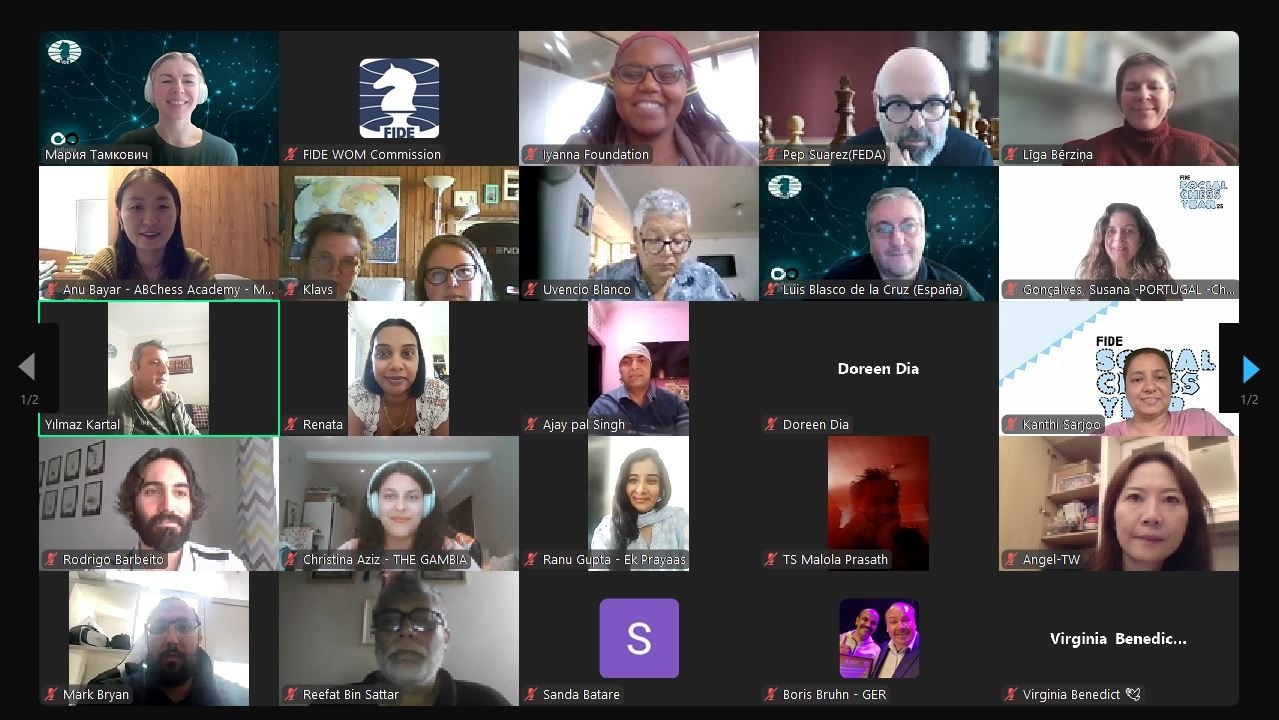
On 6 April 2025, a special meeting took place in Almaty as part of the Asian Zonal Championship 3.4 – Autism Talks: Inspiring Stories from Parents of Special Children. The central focus of the event was the FIDE Infinite Chess project, implemented in Kazakhstan with support from the Kazakhstan Chess Federation (KazChess) and the International Chess Federation (FIDE).
Inspiring stories from parents, expert speeches and support from partners came together in one space to demonstrate that inclusion is not a trend but a necessity, and that chess can serve as an effective tool for integrating children with autism spectrum disorders (ASD) into society.
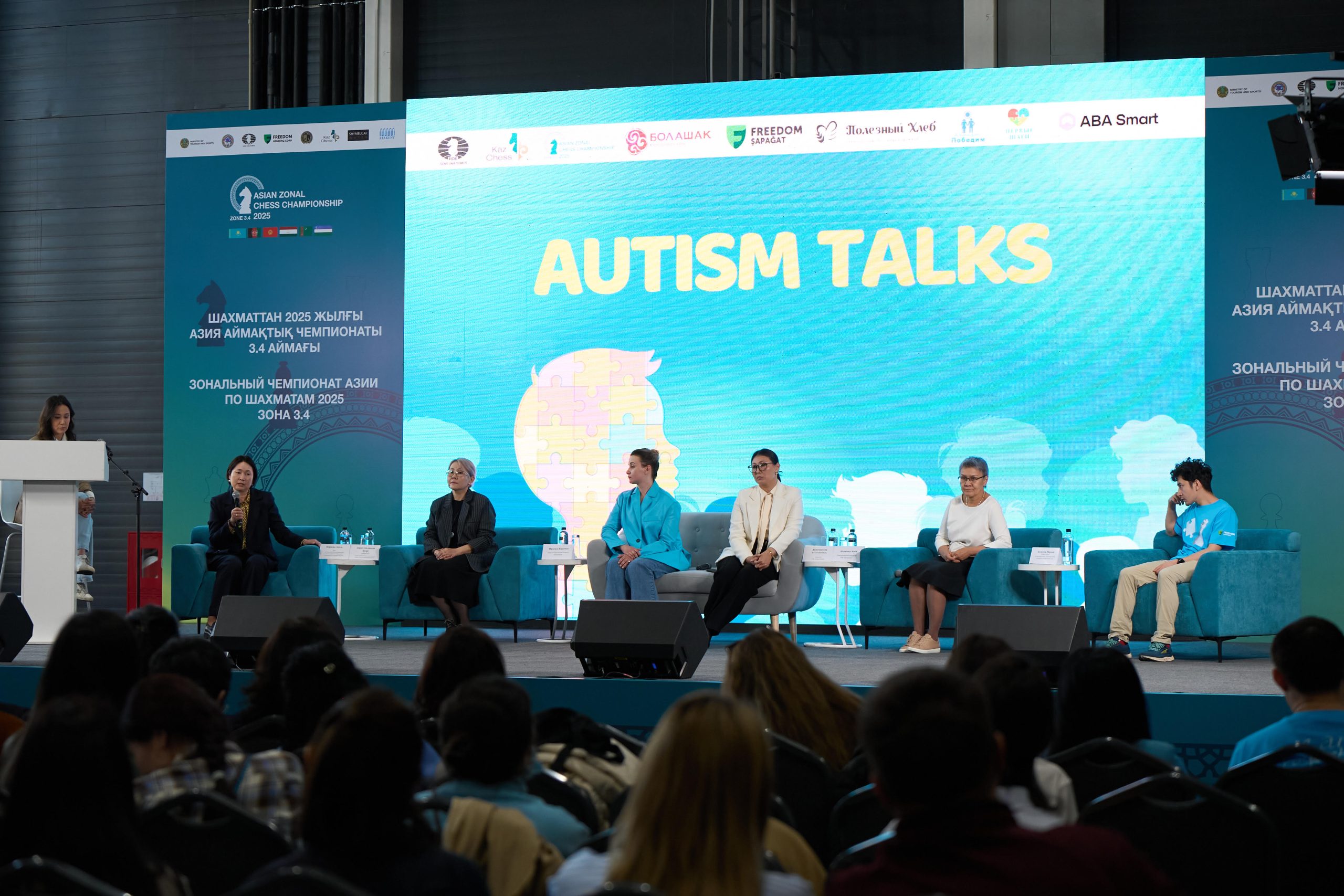
FIDE Infinite Chess: An International Platform of Opportunity
FIDE Infinite Chess ambassador Nadezhda Kravchuk spoke about the scale and philosophy of the project. She said that chess is becoming an increasingly universal tool for adaptation and development:
“The Infinite Chess project began in 2019 and has already brought together experts from different countries – from Armenia, where chess is part of the school curriculum, to Brazil, where a coach is raising a child with autism. The programme is simple and flexible: it contains recommendations on how to start classes – whether individual, group-based or inclusive – and how to explain 16 basic chess topics, taking into account the characteristics of children. We recommend starting with small groups of up to four children, with a coach and a tutor. This approach gives children the space to grow in a safe and supportive environment.”
KazChess: When Chess Talks about Important Things
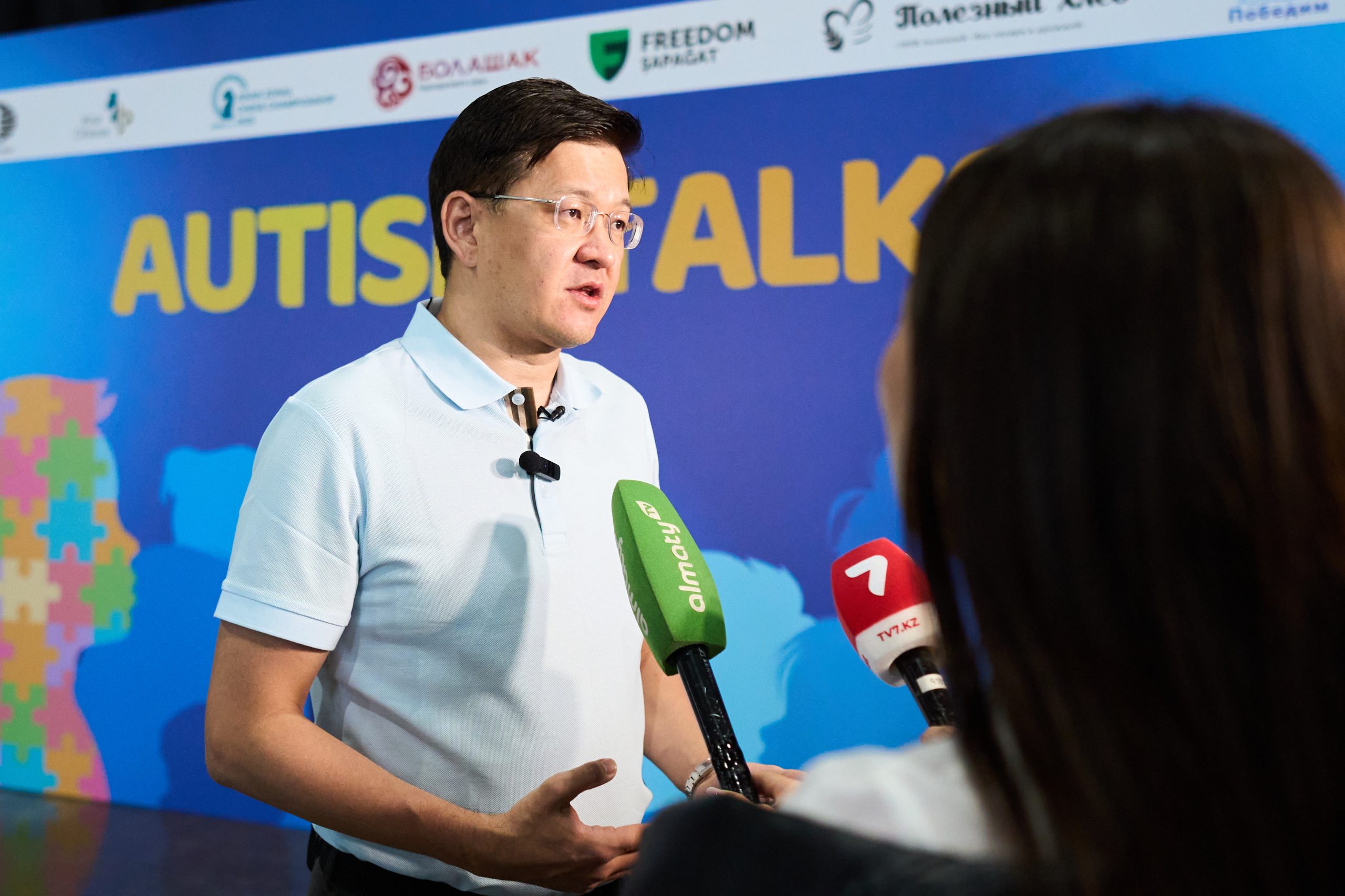
Vice-President of the Kazakhstan Chess Federation, Darmen Sadvakasov
The topic of inclusion was further developed in the context of Kazakhstan. Vice-President of the Kazakhstan Chess Federation, Darmen Sadvakasov, noted that the Infinite Chess initiative forms part of a strategic approach to promoting social responsibility in sport:
“Together with FIDE and the Bolashak Foundation, we at the Kazakhstan Chess Federation have decided to systematically develop inclusive initiatives. We deeply believe that chess is a language that needs no words but has the power to unite. That is why we launched the Infinite Chess project, which opens new horizons for children with autism spectrum disorders and other developmental disabilities. Our aim is to make the Federation not only a sporting platform but also a contributor to a truly inclusive society.”
Parent Community: A Key Agent of Change
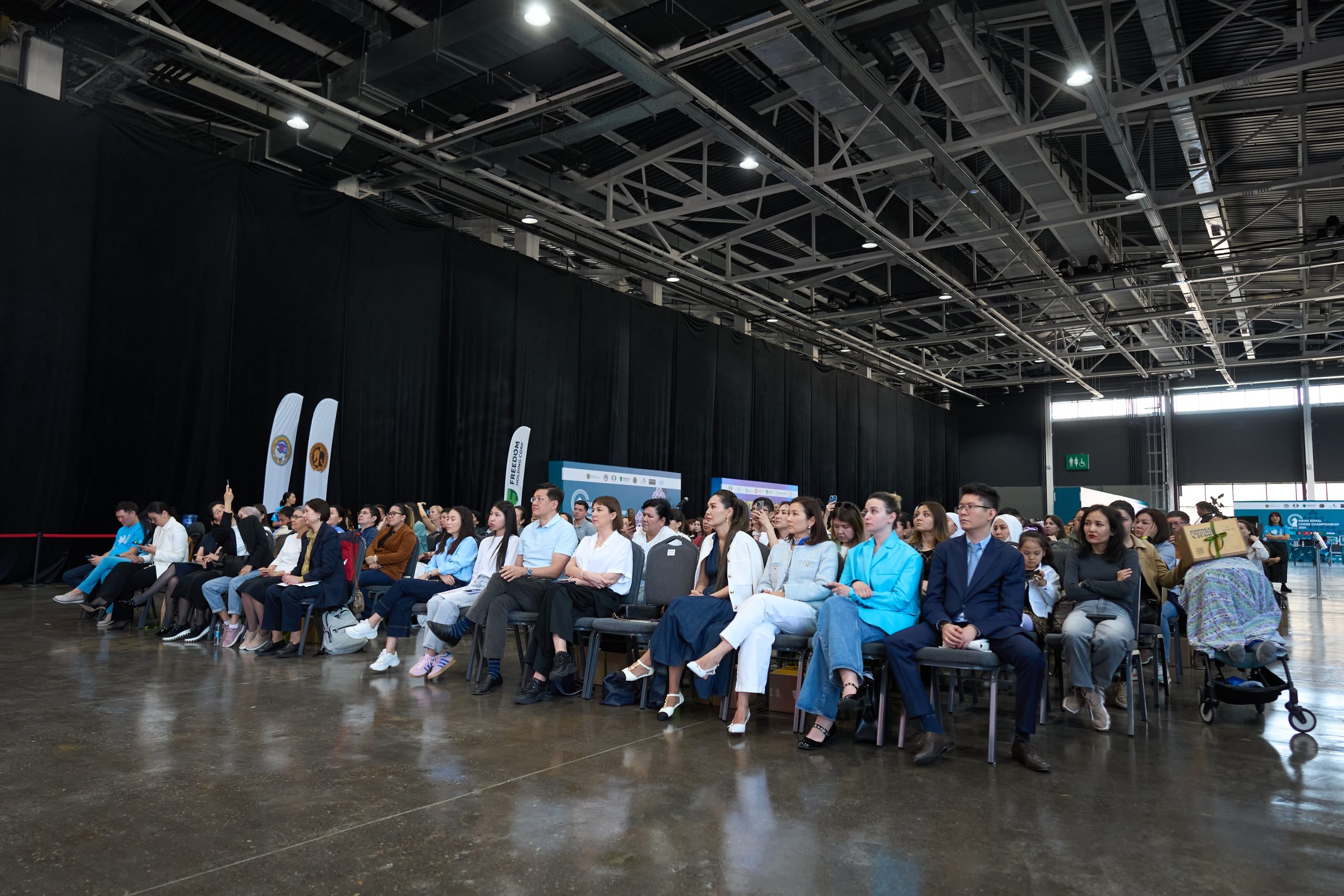
An active parent community and support from the non-profit sector play a vital role in the development of inclusive initiatives. The meeting was moderated by Dinara Gaplan, Chair of the Board of Trustees of the Bolashak Foundation. She emphasised the importance of open dialogue and experience-sharing:
“Since 2022, we have been holding this event annually, and each year its relevance continues to grow. We changed the format of the event, adding speeches by people with autism who talk about how they live and perceive the world. This year, for the first time, we are holding Autism Talks in Almaty with the support of the Kazakhstan Chess Federation. We thank our partners for helping to create opportunities for parents of special children.”
Support from Partners: The Social Vector of Chess
Among the partners of the event was the Freedom Shapagat Foundation. Its President, Baglana Mussina, emphasised that Autism Talks is important not only for raising awareness but also as a source of inspiration:
“I truly believe that initiatives like Autism Talks play a huge role in not only highlighting the challenges faced by special children and their families, but also in showcasing strength, resilience and inspiring victories. This is a journey we go through together – as parents, as specialists and as a society. It is important not only to talk about problems but also to show positive examples that change perceptions and open up new opportunities. We are proud to take part in projects where the efforts of different sectors – education, healthcare, sport – are united for a single purpose: creating a truly inclusive future for every child.”
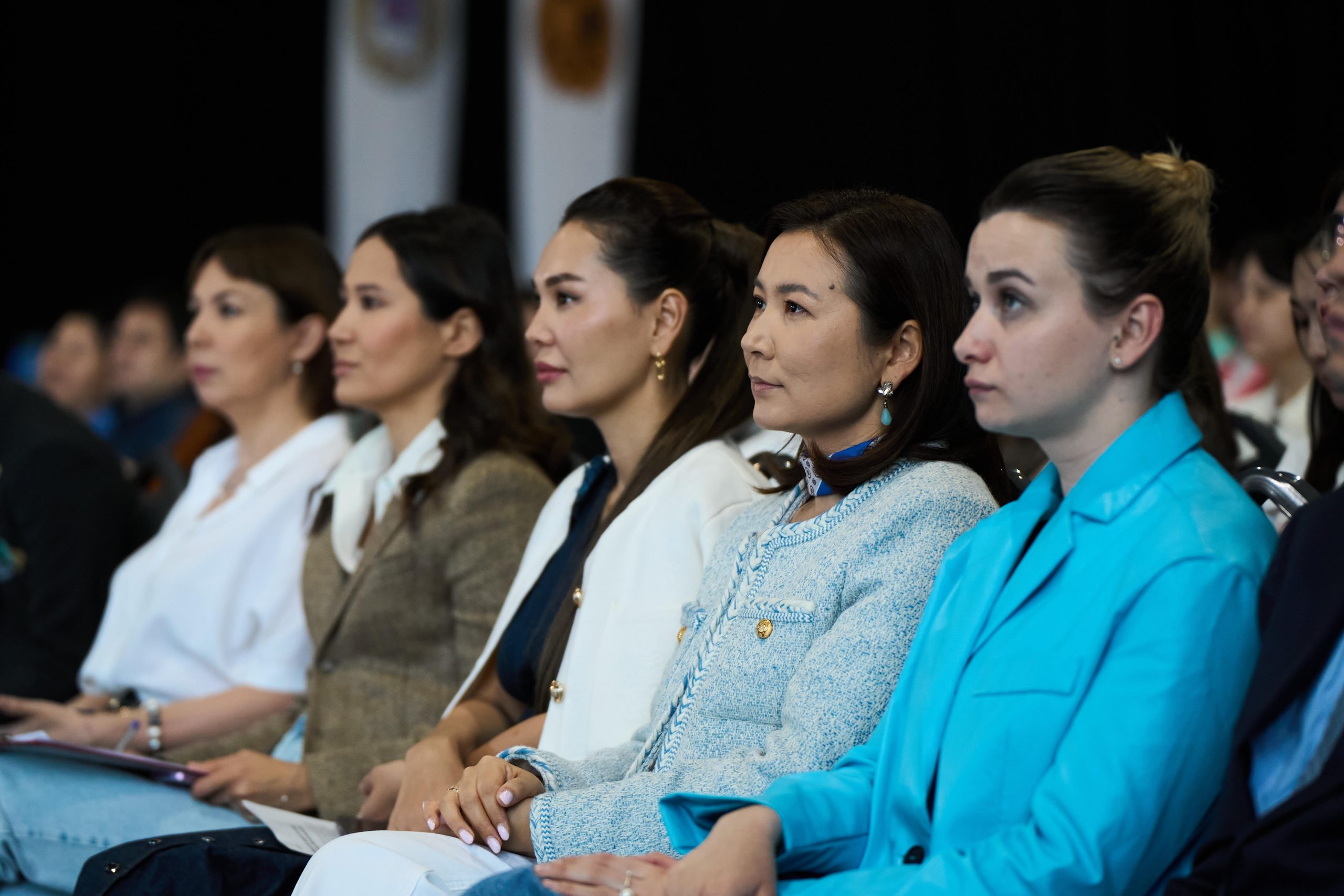
From left: Аruzhan Sain, Dinara Gaplan, Baglana Mussina. Gulmira Dauletova and Nadezhda Kravchuk
From Almaty to Astana: Geography is Expanding
The FIDE Infinite Chess project in Kazakhstan already covers two cities. In Astana, classes began in November 2024 at Special Boarding School No.1. In Almaty, the programme was launched in 2025 – coach Vitaly Kozyak conducts classes with two inclusive groups at the Defeat Autism Centre. Both centres use the FIDE methodology, which was developed with consideration for children’s behavioural and cognitive characteristics.
Gulmira Dauletova, Executive Director of KazChess and the project lead in Kazakhstan, spoke about the systematic approach to implementation:
“The FIDE Infinite Chess project is more than just chess. It is a global initiative of the International Chess Federation, now spanning 28 countries. Its main goal is to demonstrate that chess can be a universal tool for developing cognitive skills, especially in children with special educational needs. At KazChess, we are proud that Kazakhstan has become part of this major international movement. Through adapted methods and the involvement of specialists, we create an environment in which every child can realise their potential. This is a contribution not only to inclusive education but also to a future where there are no boundaries to development and communication.”
Personal Stories and Inspiration
Many sincere and powerful stories were shared at the Almaty event. Parents, experts and public figures – including Aruzhan Sain, Aliya Arkharova, Zhanna Kaliyeva, Rustam Kairbekov and Madina Nurkenova – spoke of their journeys of acceptance, growth and triumph.
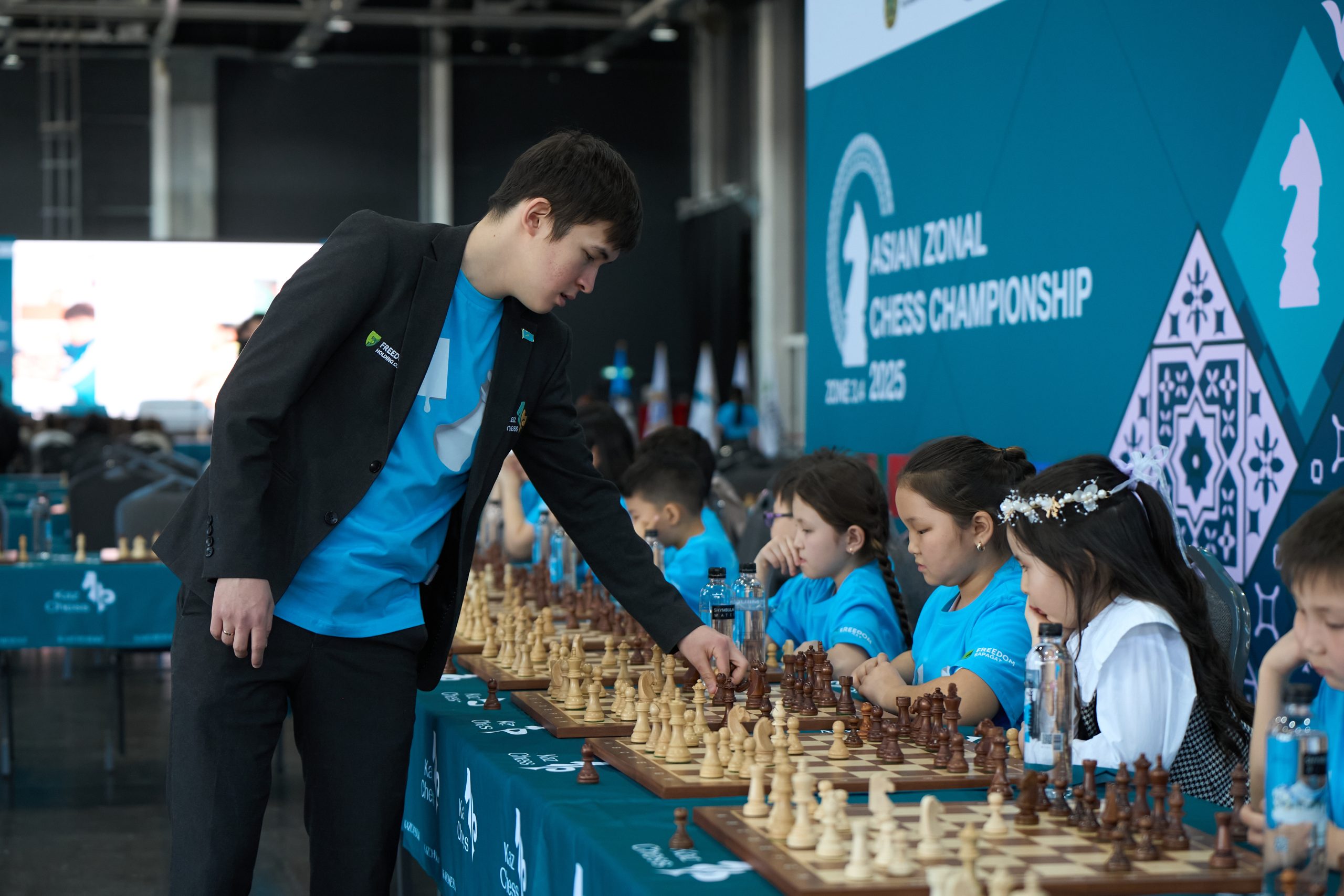
The event concluded with a simultaneous chess session featuring grandmaster and under-20 world champion Kazybek Nogerbek, along with a prize draw supported by partners, including chess sets, books and educational vouchers.
The Day Before: A Meeting in Astana
On 5 April, the day before the Almaty event, Autism Talks was held in Astana with the support of the Bolashak Foundation. Participants – parents, professionals and young people with ASD – spoke about life with the diagnosis, shared their projects and raised important issues around support, inclusive education and acceptance. This marked a further step in the broader movement towards a more open and inclusive society.
